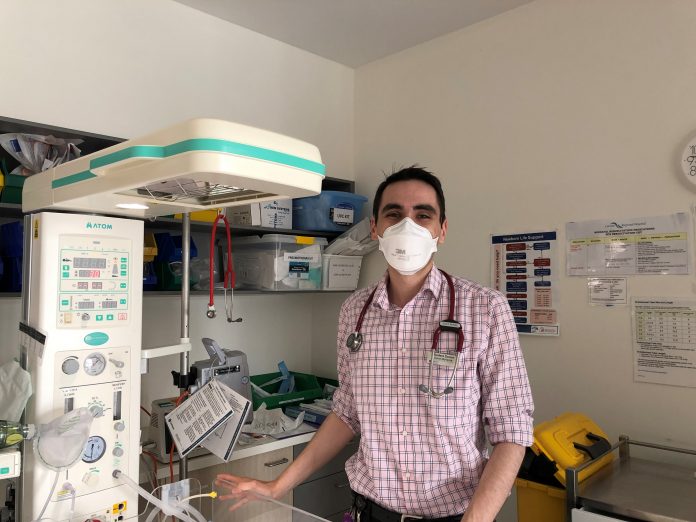Alyssa Fritzlaff
MONASH Rural Health Gippsland medical students are giving Latrobe Regional Hospital (LRH) staff a helping hand.
Throughout 2022, medical students in their third, fourth and fifth year will be completing their placement and supporting LRH staff in the process.
Their first week of placement was spent in a Code Brown, which was a unique experience for many as hospital staff and resources were re-deployed to cope with demand.
Third-year students will be placed in adult medicine and surgery, fourth year’s will take semester long placements in either General Practice or a sequence of hospital-based disciplines: Psychiatry, Paediatrics, Obstetrics and Gynaecology.
Fifth-year students will commence six-week rotations in Aged, Emergency and General Medicine, General Surgery, a range of other specialties and the Scholarly Intensive Placement.
Monash Rural Health Gippsland director Cathy Haigh said students are always supervised and only perform tasks within their scope.
“They’re not left to their own devices… they can do things like take a history, or do and examination and report back – that does help with the work flow,” she said.
Ms Haigh said the students are enthusiastic about getting some practical experience.
“COVID has wreaked its havoc over the last couple of years, so the students are very keen to back on clinical placement and have the opportunity,” she said.
“The students are mostly triple vaccinated or are in the process of doing so, they are educated in the use of PPE and are very mindful of their responsibility to attend to their own health, be responsible and act as part of the health workforce team.”
“I think they see it as an opportunity to participate and help support the health services.”
Ms Haigh believes undertaking placement at this time in history will be a valuable experience for the students.
“They are seeing people working under extraordinary circumstances and they’re seeing people giving their all to help keep the health services operational – it’s inspiring for them to see that,” she said.
Fourth year medical student David McAlpine, from Leongatha, is currently completing his placement at LRH. He feels the experience he and his cohorts have had over the past few years will be helpful moving forward.
“Last year was disrupted due to COVID, we were taken off placement at times and some of our rotations had to be juggled around,” he said.
This year has been better so far, and Mr McAlpine has been able to start his first placement in Paediatrics uninterrupted.
Having experienced a pandemic first-hand, Mr McAlpine feels his cohorts’ practice of medicine will be informed by their experiences over past two years.
“I think setting up the behaviours that you need to be safe with regards to infectious diseases is incredibly important,” he said.
“We are always going to be the medical student generation that started during the height of COVID, and I think that will inform a lot of what we do.”
Telehealth, which has become widely used during the pandemic, is another tool that Mr McAlpine said he and other students will be well-versed in by graduation, something he feels will be valuable in his pursuit to practice medicine in a rural setting.
“We’ve also seen a side to medicine that we wouldn’t have seen otherwise in the telehealth,” he said.
“Because I do have an interest in rural health, and making healthcare accessible, I do think the expansion of telehealth… is incredibly important for rural communities in particular.
Dr Tony Chan is an Emergency Physician and supervises students during their placement.
He agrees that the students’ experiences during this time period will be valuable.
“They will be doing things like taking bloods, writing histories, ordering tests, making phone call referrals,” he said.
“They’re basically following the instructions of the decision maker. So that might be the consultant, or a senior doctor.
“The next step for fifth-year students is to become an intern, and Dr Chan believes this experience will help them prepare for the coming years.
“This is what they’re going to be doing when they come out as interns, and I think this particular experience would actually make them more ready,” he said.
“It will make them better interns, more experienced and more work ready.”












